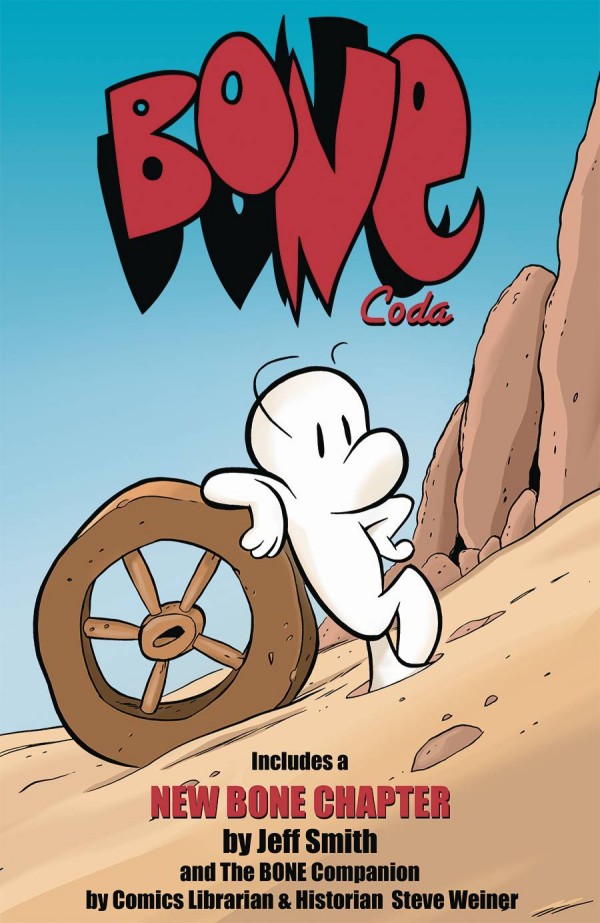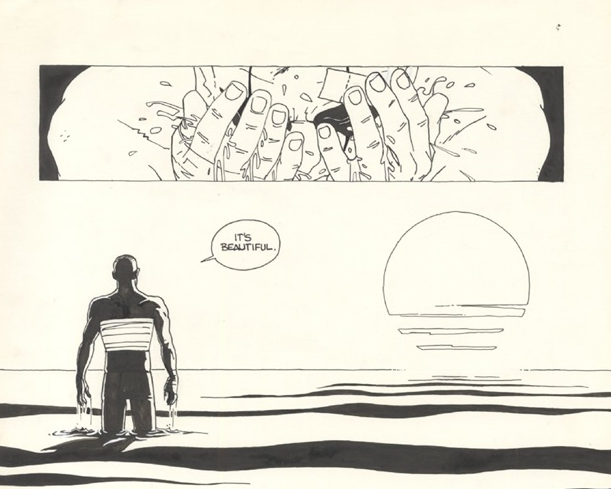 Written by Hope Larson
Written by Hope LarsonIllustrated by Hope Larson
Atheneum Books
I never got to go to a summer camp growing up. I don't know what the reason was for that. So I guess I get a bit wistful whenever the subject comes up in a book.
Chiggers is the story of Abby's summer at a camp where an early bout of Chiggers replaces her typical, if annoying, first roommate with a mysterious girl who claims to have been hit by lightning.
Our new arrival, Shasta, immediately rubs everyone the wrong way, except for Abby, who is struggling for acceptance and her place in the camp. Their friendship and the problems it causes for Abby form the core of this book. Over time, they become closer--and yet further away--as the summer reveals a lot about growing up and its problems.
I really have no way to justify this stance, but Larson's portrayal of camp life and its dynamics seem spot on to me. I remember when I was that age, allegiances changed on a dime and crushes came and went almost as often as promotions at the fast food restaurants we all frequented. This was especially true when a new arrival came on to the scene. It always seemed like it was the equivalent of a rock being thrown in a pond--the ripples threw us all off until they either left or the ripples subsided.
Abby feels that in her experiences. She's already nervous because her dynamics are off, as one friend moves up and others seem ready to move on. When the new girl attaches herself to Abby, she's torn between old friends and the new girl--and the dynamic nearly ruins her. I think Larson does a great job of showing how hard it is to be that age, without introducing concepts that would be foreign to someone that age.
I also like the way that Larson uses the imagination of a young girl to allow the story to have spectacular elements. Shasta claims to have an issue with lightning, and this plays out in some spectacular visuals in Larson's hands. She keeps the story mostly grounded in reality but allows for just a bit of childhood imagination to run free.
There are a few scenes that were really heartbreaking for me. I remember being the kid others talked about behind their back. There's nothing worse than knowing someone hates you--and you can't even figure out why. Similarly, I am so glad to be rid of needing to worry about who you have a crush on. That was a rough time for a lot of us, I suspect, and reading this looking backward is sure to bring up a lot of memories, both good and bad.
Chiggers is a good look back for any adult reader who remembers the issues they had growing up. (If you were issue free, lucky you, and I bet you're lying.) However, I really think a book like this would be helpful for a younger reader as well. I think it might have helped me to see characters in the fiction I was reading who I could relate to. I always found the young men and women in the age-appropriate fiction I read at the time to be too perfect. The Hardy Boys were, well, hardy. I was geeky and awkward. Meeting someone like Abby in my reading would have helped me a lot.
Then again, I say this as person with no children, so I could be completely off the mark.
Larson's cartooning peers are Faith Erin Hicks and Bryan Lee O'Malley, and it shows in her style. She has very strong character outlines, uses black ink effectively, and her characters have the wide, staring eyes of Hicks and O'Malley. However, she is a bit more restrained in presentation, with everything feeling grounded in a more proportional manner. I really like some of the imagery she uses, such as when Abby cuts herself shaving or the ripples in the water.
Nothing in the book is strongly detailed, giving the whole picture an essence of mystery to it and setting it in the hazy memories of a girl looking back on her days at the camp. Water ripples, trees, and even the camp walls themselves trail off into the edges of the page. Larson uses her art to give the book a feel of memory rather than a current event. I think it works well in the context of the story she's telling.
By the end of Chiggers, as with all good stories of this type, Abby understands herself a bit better, and so does the reader. She's ready to move on but we don't feel as though the story is incomplete. That's how any good book should end, and Chiggers is no exception.
Ms. Larson's book received a lot of high marks when it was released, and deservedly so. It's a story that works for its age group but can also be appreciated by an adult audience. If you have a young man or woman struggling to find their place, give them this book. Make sure you read it, too--you might learn something about yourself along the way. Chiggers is definitely recommended, and I look forward to more work from Larson in the future.







